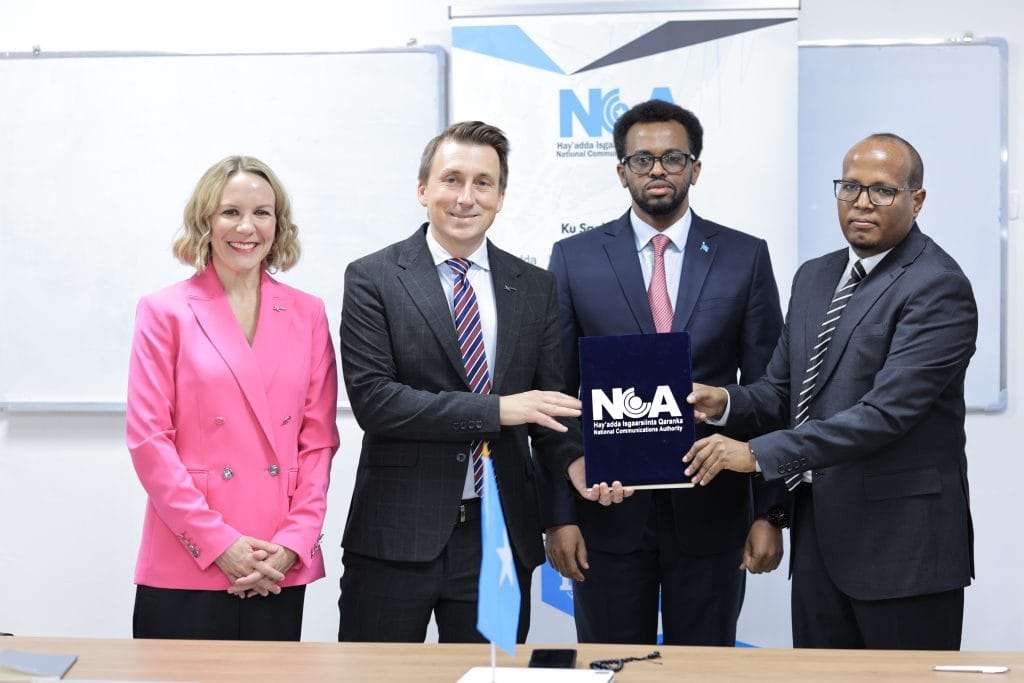Somalia’s National Communications Authority (NCA) has officially granted a license to Starlink, the satellite internet company owned by Elon Musk’s SpaceX, to operate in the country. The move is being hailed as a major step forward in bridging Somalia’s digital divide, particularly for underserved and remote rural communities.
The announcement was made during a formal ceremony in Mogadishu attended by Starlink representatives and senior government officials. The licensing agreement enables Starlink to begin rolling out its high-speed, low-latency satellite internet service across Somalia—offering a transformative boost to national connectivity efforts.
Starlink’s entry into Somalia represents a significant milestone in our efforts to bridge the digital divide,”
said Mustafa Yaasin Sheik, Director General of the NCA. “This partnership will play a pivotal role in ensuring affordable and reliable internet access across the country, including areas previously beyond the reach of traditional infrastructure.”
Starlink’s expansion into Somalia follows its growing footprint across the African continent. The company already operates in Nigeria, Rwanda, Mozambique, Kenya, and Malawi, where it has been recognized for enhancing internet access in rural and underserved communities. Its low-orbit satellite technology is especially suited for countries facing infrastructure challenges.
The announcement also follows recent strategic developments. In November 2024, a high-level delegation from Elon Musk’s team visited the Somali Embassy in Washington, D.C., reportedly to explore opportunities for partnership in digital infrastructure and aerospace. The visit came shortly after Türkiye declared plans to establish a spaceport in Somalia, which it says could serve both civilian and missile-launch purposes.
The convergence of these events signals Somalia’s emerging importance in global technological and geostrategic initiatives. With Starlink’s launch, the country aims to strengthen its digital economy, foster innovation, and position itself as a regional hub for connectivity and space cooperation.
Officials say initial rollout phases will prioritize remote districts and regions impacted by years of conflict and underdevelopment, before expanding into urban centers.


